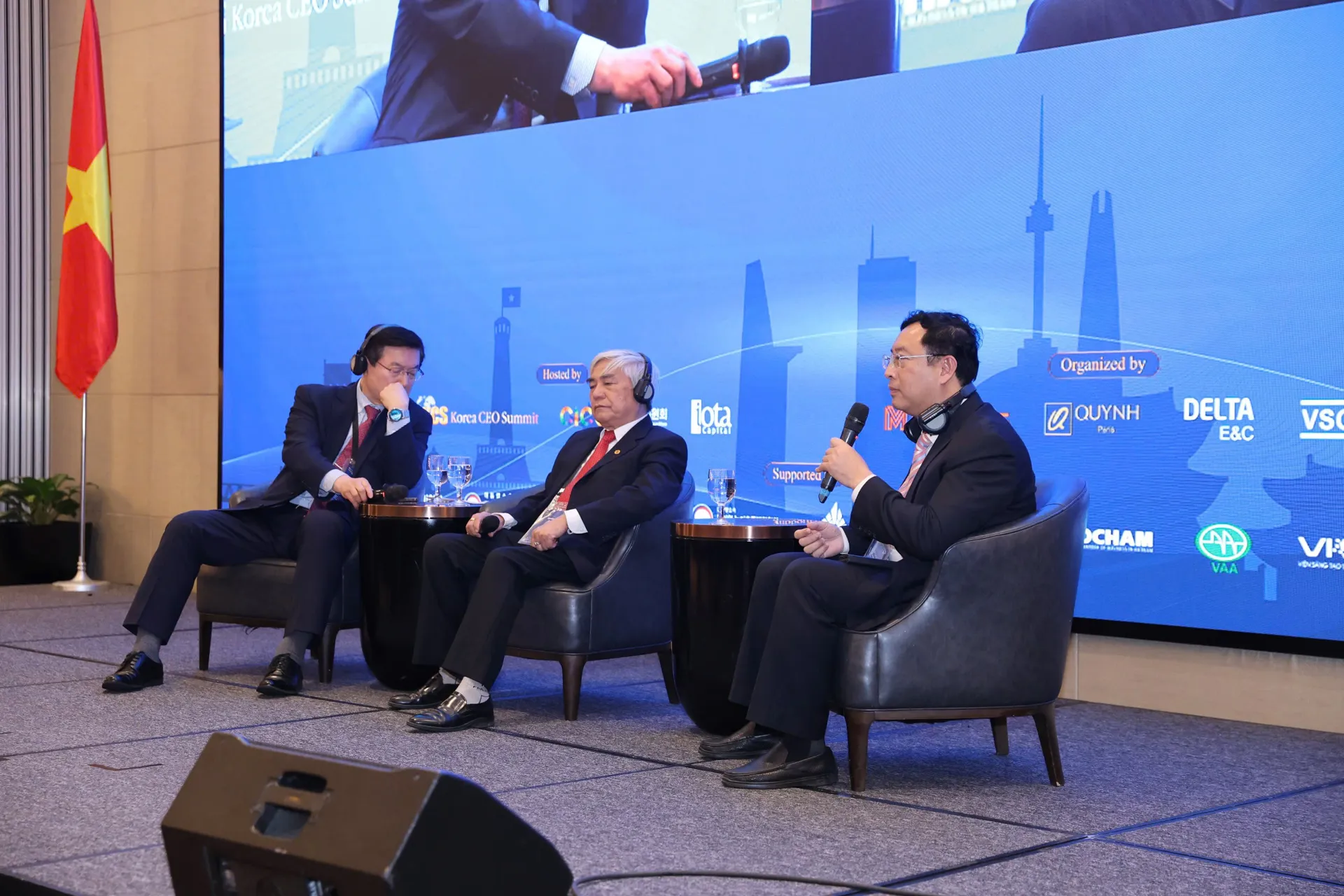Vietnam, South Korea boost AI ties for growth
The CICON Vietnam 2025 Forum spotlighted enhanced Vietnam-South Korea AI cooperation to drive innovation and economic growth through strategic partnerships.
THE HANOI TIMES — Vietnam and South Korea are poised to strengthen joint research efforts and co-develop artificial intelligence (Al) technologies, former South Korean Minister of SMEs and Startups Joo Young Sup announced Wednesday at the CICON Vietnam 2025 Forum in Hanoi.
Held under the theme "The Age of AI: Economic Cooperation between Korea and Vietnam," the forum served as a high-level platform for dialogue and a springboard for deeper collaboration across key sectors, including technology, green energy, investment, and the creative industries.

Former South Korean Minister of SMEs and Startups Joo Young Sup, Former Minister of Science and Technology Nguyen Quan (middle), and Pham Hong Quat, Director General of the Agency for Technology Entrepreneurship and Commercialisation Development (right) discuss Al cooperation. Photos: VSCE
Joo Young Sup said that AI presents a level playing field for countries worldwide, and with the right strategy, Vietnam and South Korea could rapidly catch up or even surpass other nations in technological advancement.
He said said technology plays a central role in national transformation, and urged both countries to determine whether they will simply adopt existing technologies or take the lead in innovating and creating original products.
To fully unlock the potential of AI, he called for deeper bilateral cooperation in key areas such as semiconductor research, talent development, workforce training, and the creation of institutional frameworks to support innovation and long-term, sustainable growth.
Pham Hong Quat, head of Vietnam’s Agency for Technology Entrepreneurship and Commercialisation, voiced strong support for deeper AI collaboration, highlighting South Korea’s advanced innovation ecosystem. He proposed joint research and innovation centers to connect science, technology, and young talent from both countries.
He also revealed plans for national investments in shared data infrastructure, supercomputing, and large-scale cloud platforms to support generative AI research at universities and by youth-led teams.
Former Minister of Science and Technology Nguyen Quan expressed confidence that international partnerships, especially with South Korea, will accelerate Vietnam’s digital transformation and high-tech growth. He called for a cooperation model grounded in research, training, and commercialization.
Quan said that a 2012 proposal by Vietnamese leaders during a visit to South Korea led to the creation of VKIST, modeled after KIST and funded through South Korea’s non-refundable ODA. VKIST now plays a pivotal role in Vietnam’s innovation ecosystem.
The Vietnamese Government has launched incentives to boost AI research and applications, aiming for the digital economy to contribute 30% of GDP by 2030. It plans to allocate up to 2% of GDP for R&D, tech development, and talent training, with a focus on AI.
Expected outcomes: deepening investment ties
CICON Vietnam 2025 brought together nearly 100 leading South Korean companies, along with experts, government agencies from both countries, and senior business leaders from Vietnam and South Korea.
The forum is expected to be a key bridge for attracting South Korean investment into Vietnam, offering Vietnamese companies new opportunities to tap into fresh waves of investment.
Vincent Pham, Chairman of IOTA Capital, shared that many South Korean investors are ready to invest in Vietnam’s priority sectors in the new era.
Park Bong Kyu, Chairman of the Korea CEO Summit, emphasized that South Korea has emerged as Vietnam’s top foreign investor. Bilateral trade has grown dramatically from US$500 million in 1992, the first year of diplomatic relations, to $86.8 billion in 2024.
“Trade value is expected to surpass $100 billion in the next two to three years, demonstrating how our partnership has flourished,” he said.












